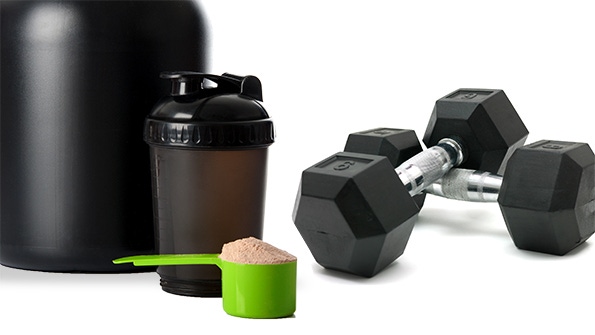Power up your aisles with safe and natural performance enhancers
Natural sports supplements can boost energy levels, improve performance and build muscle. Here are some leading nutrients to share with your customers.
August 21, 2015

Body builders and other serious athletes have often been the vanguard in using natural performance enhancers, long before these supplements appealed to larger numbers of health-conscious consumers. Unfortunately, a few athletes have abused stimulants and hormones to gain a competitive if illegal edge.
That said, plenty of natural, and safe, nutritional supplements exist for enhancing athletic prowess. They work by tweaking biochemistry to boost energy levels, improve performance and build muscle - not as stimulants that eventually burn out the user.
Without a doubt, protein is number one. “Higher dietary protein intakes are anabolic, not just for athletes, but for all people,” says Loren Cordain, PhD, a professor of exercise physiology at Colorado State University, Fort Collins, and the coauthor of the Paleo Diet for Athletes. That’s because muscle consists mostly of protein, a word derived from the Greek proteios, meaning of greatest importance.
Protein continues to dominate sales of sports nutrition products, a category that appeals to highly motivated and competitive people who want to step up their game. Sales of natural sports-related products, including capsules and powders, grew by 13 percent in 2013 compared with the prior year, according to a report by the Nutrition Business Journal. The estimated sales of sports nutrition products was $4.5 billion overall in 2013, with powders and formulas accounting for $3.8 billion in sales and capsules accounting for $213 million.
Performance enhancers. When it comes to energy and stamina, think in terms of mitochondria. All of the body’s cells, but especially muscle cells, contain these specialized structures that break down carbs and fats for energy. Your energy results from the collective effort of mitochondria in your body’s trillions of cells. Coenzyme Q10 (CoQ10), L-carnitine and the B-complex vitamins help convert food molecules to ATP (adenosine triphosphate), the chemical form of energy produced in mitochondria. Later on, creatine helps cells recycle and reuse ATP. In addition, recent studies on the amino acid beta-alanine show that it can significantly boost athletic endurance.
Dose: Suggest 100 mg of CoQ10, 1,000 mg of carnitine, a B-complex supplement, 5 grams of creatine or 6 grams of beta-alanine daily.
Muscle and strength builders. The protein that forms muscle consists of chains of amino acids. So to increase lean muscle and strength, consuming more protein is the surefire way to complement an exercise regimen. Protein supplements abound, with most sold as powders to be mixed with water or other liquids. Whey (derived from dairy), soy, algae and other vegetable-source proteins are available, as are multi-amino acid supplements.
Dose: Products vary, so have customers follow label instructions.
Recovery aids. Strenuous exercise can result in sore muscles and the need for a little help to quickly bounce back. “L-leucine and the other two branched-chain amino acids (BCAAs), L-valine and L-isoleucine, are different from other amino acids, because they stimulate both the building and repair of muscle,” points out Cordain. While most studies have focused on men, a 2013 University of Vermont study found that the BCAAs improved post-exercise recovery and eased muscle soreness in female college students. Curcumin, a powerful natural anti-inflammatory, also appears to reduce post-exercise muscle soreness and stress, according to two new studies.
Dose: 3 grams of L-leucine, with approximately 1.5 grams each of L-valine and L-isoleucine.
Injury relief. Inflammatory injuries, including muscle strains, are inevitable if occasional consequences of intense exercise. The omega-3s are well known for their anti-inflammatory and anti-pain benefits, and 15 years ago the Danish Olympic team began using a combination of omega-3 fish oils and gamma-linolenic acid (GLA) to reduce inflammation in injured athletes and to speed their healing. The same supplement regimen can also help weekend warriors suffering from tendonitis, and a 2014 study confirmed the anti-inflammatory benefits of omega-3s for athletes. British researchers recently suggested that a combination of omega-3s and L-leucine might prevent muscle atrophy during lengthy periods of healing.
Dose: Approximately 700 mg of omega-3s and 700 mg of GLA daily.
About the Author(s)
You May Also Like




